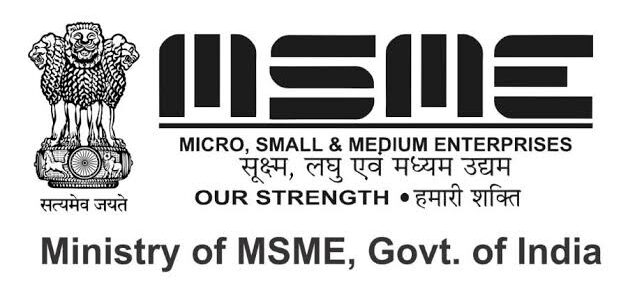Income tax laws in India are designed to ensure that businesses and individuals pay their fair share of taxes based on their income and activities. The laws encompass a broad range of requirements, including tax deductions at source (TDS), tax collection at source (TCS), income tax returns (ITR), and auditing obligations. This article provides a detailed overview of these laws and their applicability to different types of businesses in India, including sole proprietorships, partnerships, LLPs, private limited companies, and others.
1. Income Tax Act, 1961: An Overview
The Income Tax Act, 1961 is the primary legislation governing income tax in India. It outlines the tax liabilities, deductions, exemptions, and compliance requirements for businesses and individuals. The Act is periodically updated through amendments to address evolving economic and regulatory needs.
2. Applicability of Income Tax Laws to Different Business Types
a. Sole Proprietorship
- Taxation: Income from a sole proprietorship is taxed as the personal income of the owner. The proprietor must include the business income in their individual income tax return (ITR).
- Accounting and Audit: Proprietors must maintain books of accounts under the Income Tax Act, and an audit is required if the turnover exceeds ₹1 crore (₹5 crore for businesses opting for presumptive taxation under Section 44AD).
- TDS/TCS: Sole proprietors are required to comply with TDS provisions if they make payments that fall under the TDS criteria (e.g., salaries, rent). TCS provisions apply if they are involved in the sale of specified goods.
b. Partnership Firms
- Taxation: Partnership firms are taxed separately from their partners. The firm is taxed on its income, and the partners are taxed on their share of the profits received.
- Accounting and Audit: Partnerships must maintain books of accounts and have them audited if their turnover exceeds ₹1 crore (₹5 crore under Section 44AD).
- TDS/TCS: Partnerships must deduct TDS on applicable payments and comply with TCS regulations for specified transactions.
c. Limited Liability Partnership (LLP)
- Taxation: LLPs are taxed as separate entities. The income of the LLP is taxed at the firm level, and partners are taxed on their share of income received from the LLP.
- Accounting and Audit: LLPs must maintain books of accounts and have their accounts audited if their turnover exceeds ₹40 lakh.
- TDS/TCS: LLPs are required to comply with TDS and TCS provisions similar to partnerships.
d. Private Limited Companies
- Taxation: Private limited companies are taxed as separate legal entities. The company’s income is taxed at the corporate tax rate, and shareholders are taxed on dividends received.
- Accounting and Audit: Companies must maintain detailed books of accounts and are subject to annual audits. The audit is required under the Companies Act, 2013, and not necessarily based on income tax turnover thresholds.
- TDS/TCS: Companies must comply with TDS and TCS provisions, including withholding taxes on payments such as salaries, interest, and contract payments.
e. Public Limited Companies
- Taxation: Public companies are taxed similarly to private limited companies but are subject to additional regulatory requirements due to their public status.
- Accounting and Audit: Public companies have stringent accounting and audit requirements under the Companies Act, 2013, including quarterly financial disclosures and annual audits.
- TDS/TCS: Public companies must adhere to TDS and TCS provisions and ensure compliance with regulatory standards.
3. Key Income Tax Compliances
a. Tax Deducted at Source (TDS)
- Applicability: TDS is applicable on various payments, including salaries, interest, rent, professional fees, and contract payments. The payer is responsible for deducting TDS and remitting it to the government.
- Compliance: Businesses must obtain a Tax Deduction and Collection Account Number (TAN) and file quarterly TDS returns. Form 26AS provides a consolidated view of TDS deducted and deposited.
b. Tax Collected at Source (TCS)
- Applicability: TCS is applicable on the sale of specific goods (e.g., scrap, tendu leaves) and certain transactions (e.g., foreign remittances). The seller collects tax from the buyer and remits it to the government.
- Compliance: Businesses must file TCS returns quarterly and issue TCS certificates to buyers.
c. Income Tax Returns (ITR)
- Filing: Businesses must file annual income tax returns to report their income, deductions, and taxes paid. The due date for filing ITR varies based on the business type and financial year-end.
- Forms: Different forms are used for different types of businesses (e.g., ITR-3 for partnership firms, ITR-5 for LLPs).
d. Audit Requirements
- Applicability: Businesses must undergo an audit if their turnover exceeds specified limits or based on statutory requirements (e.g., Companies Act, 2013).
- Compliance: Auditors must certify that the accounts provide a true and fair view and comply with accounting standards. The audit report must be filed along with the income tax return.
4. Accounting Laws Applicable to All Businesses
- Accounting Standards: Businesses must adhere to Accounting Standards (AS) issued by the Institute of Chartered Accountants of India (ICAI) or Indian Accounting Standards (Ind AS) for financial reporting.
- Books of Accounts: Businesses must maintain proper books of accounts reflecting their financial transactions. The types of books include cash books, ledgers, journals, and bank books.
- ERP Systems: Utilizing ERP systems (e.g., Tally, SAP) helps in accurate record-keeping, compliance with accounting standards, and efficient financial management.
5. Import and Export Regulations
- Import-Export Code (IEC): Businesses involved in import or export activities must obtain an IEC from the Directorate General of Foreign Trade (DGFT).
- Customs Compliance: Proper documentation and adherence to customs regulations are required for importing and exporting goods, including maintaining accurate records of transactions.
Conclusion
Understanding and complying with income tax laws in India is essential for businesses of all types. From TDS and TCS obligations to income tax returns and auditing requirements, adherence to these regulations ensures legal compliance and financial transparency. Leveraging advanced ERP systems and maintaining accurate books of accounts can streamline accounting processes and facilitate compliance.
For expert assistance with income tax compliance, accounting, and bookkeeping, WynSwell offers comprehensive services tailored to your business needs. Our team ensures that your financial operations adhere to all statutory requirements, allowing you to focus on growing your business. Contact us for customized solutions that fit your business model, whether you’re involved in manufacturing, services, or trading.












